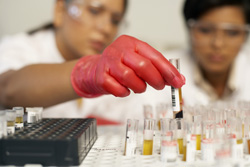Involving the main stakeholders in health research
To address the needs of patient organisations (POs) in the health research sphere, the 'Capacity-building for patient organisations to participate in research activities' (Capoira) project was set up to support their ability to take part in related research activities. Partners worked to develop a capacity-building module, 'Understanding clinical trial protocols' for implementation through a number of sessions in one country. The aim was to run this as a pilot project which could then be extended in applicability for other Member States. The capacity-building sessions, open to POs for rare or common diseases, sought to familiarise participants with the concepts, vocabulary and main aspects of clinical research. Evaluation of the clinical trial protocol sessions showed enhanced familiarity with the evidence-based medicine frame and the finer details of clinical research for patients. This empowers them as patient representatives and establishes their safe and informed participation in clinical research (public and private). A two-day European workshop, 'Gaining access to rare diseases research resources', was also a pilot initiative with the purpose of giving patient representatives a better understanding of the concepts, vocabulary, instruments and policies of EU-level health research. Securing more efficient participation of POs in EU-funded research projects will also help maximise the use of existing research resources. As such, patient representatives will act as catalysers for progress in research on their own disease and lead to enhanced capacity for setting future research priorities. The workshop helped identify the needs, as related to research activities, of the rare-disease patient community and shared information about the relevant tools that are already available in Europe. By taking an innovative model at the national level and turning it into one applicable at the European level, Capoira succeeded in showing that such capacity-building events can be extended to other European countries. Recognising that further work is needed in this regard, team members have made suggestions for improving on the organisation of events for better application of the model in the future. Project efforts and successes have thus contributed an improved approach to research on rare diseases and have the potential to enhance patient quality of life and, over the long-term, treatment outcomes.







